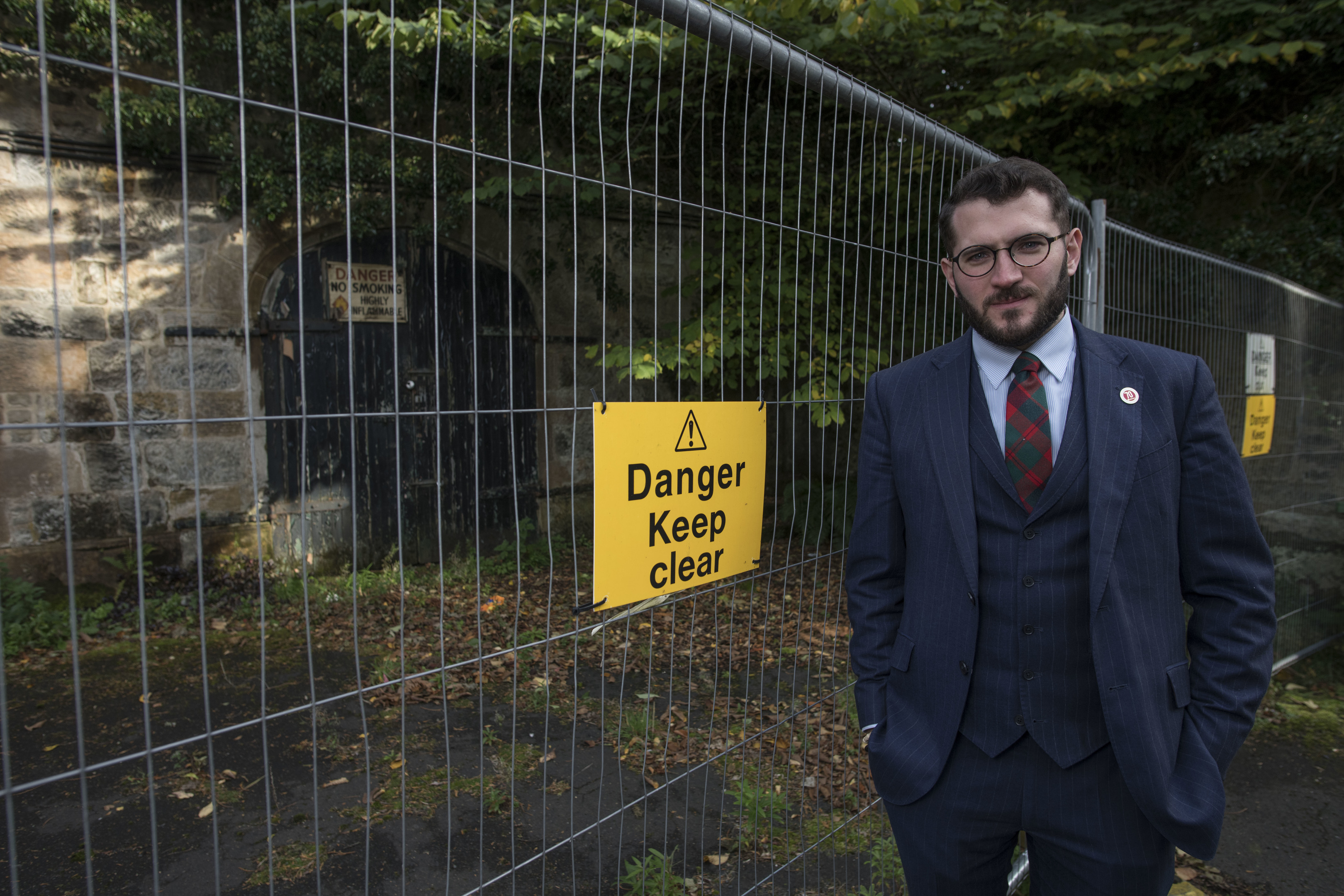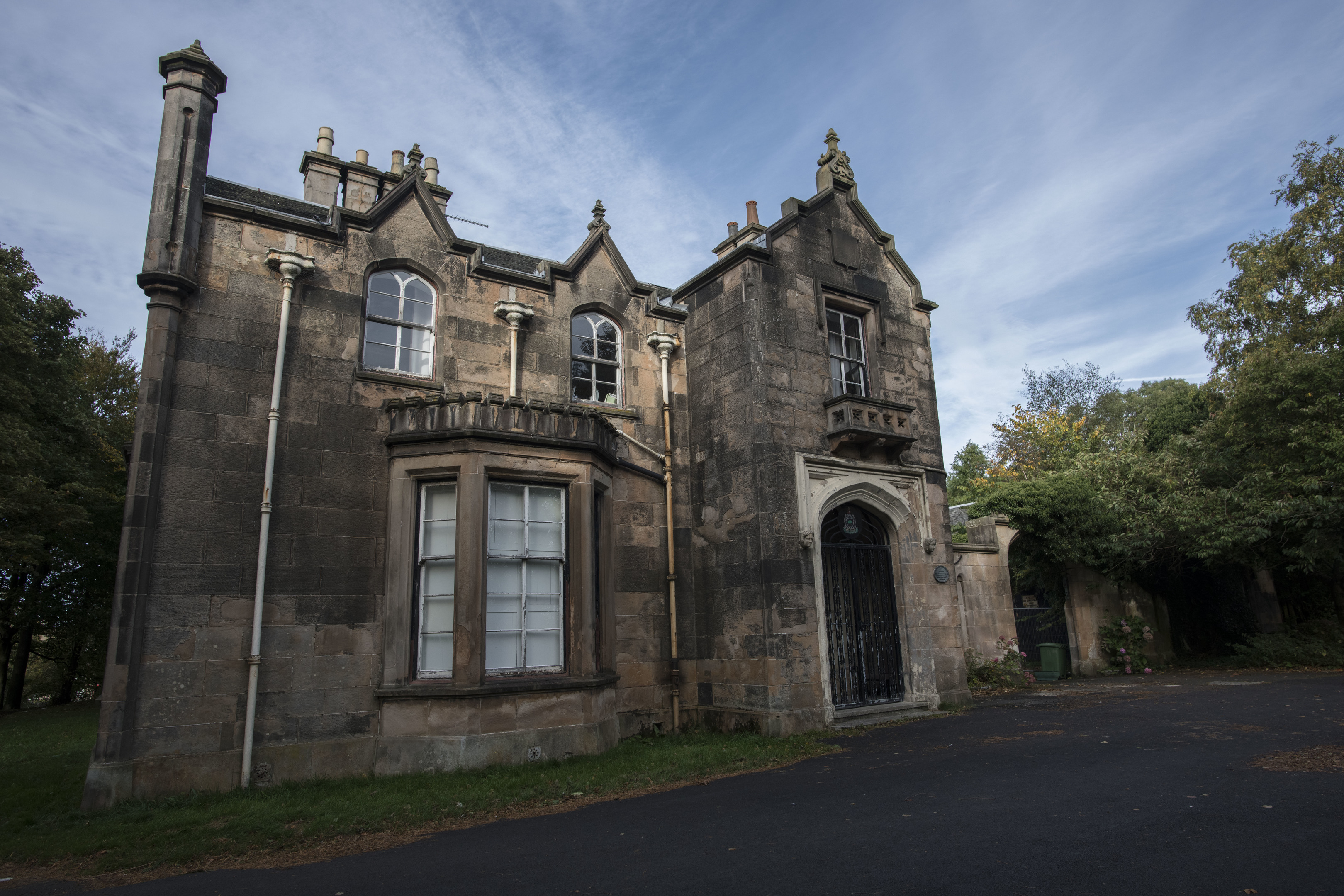
IT lies in dilapidation and dereliction; neglected, forgotten, covered with ivy and surrounded by security fences.
But this house and surrounding outbuildings were once the extraordinary hub for motor industry pioneers.
The now-tumbledown garages in north Glasgow were the birthplace of the Mo-Car, which is believed to have been the first British-built motor car.
Engineer and inventor George Johnston created the petrol-powered “dogcart” in his dad’s outhouse in 1895.
He was booked by the police as he whizzed along Buchanan Street late at night during its test drive.
But the workshop at Mosesfield House where the Mo-Car was built is now so dilapidated that it is not safe to enter.
The single-storey garage in Springburn Park is riddled with wet and dry rot, has an unstable, leaking roof and is overgrown with ivy.
Now Paul Sweeney, the MP for Glasgow North East, has called for it to be restored and also for its “historical significance” to be recognised.
He said: “We’re really keen to secure funds for repairs to Mosesfield House and its outbuildings. The council doesn’t seem interested in dealing with the repairs despite its historical significance.
“It would be great to see something that would demonstrate the building’s significance and history.
“People know about locomotives being built in Springburn but not many people would know about the fascinating heritage of the motorised carriage.”
Mr Sweeney is now considering an application for a grant from the Glasgow City Heritage Trust to pay for restoration.
He has been backed by the Friends of Springburn Park, a group set up to support and protect the amenities in the 77-acre Victorian park.
The group said: “The Friends would support Paul in the desire for Mosesfield House in Springburn Park to be recognised for its heritage role, particularly the building of the Mo-Car, the first motorised vehicle in the UK.”
The little-known story of Scotland’s role in the early days of motoring began with the birth of George Johnston in 1855.
Johnston started his career as an apprentice engineer at a locomotive works but also forged a reputation as an inventor. He developed a fascination with the internal combustion engine and when he bought one of the first imported cars in 1895, he decided he could create a better version himself. He took over a workshop at Mosesfield House and with the help of his cousin Norman Fulton and a friend, they made and patented a petrol “dog cart”.
Experts believe the Mo-Car was the first British-built car. It had a wooden body and was powered by a 10-horsepower engine which was started by pulling on a rope.
Johnston ventured out on a 20-mile test-drive round the streets of Glasgow at midnight in November 1895.
But as he drove along Buchanan Street at 12mph, he was stopped and charged with breaching the Locomotive Act by driving a “horseless carriage” during prohibited hours. The achievement of building the prototype car was the highlight of Johnston’s career.
He established the Mo-Car Syndicate to build motorised dogcarts but the factory was destroyed by fire in 1901 and the firm was later bought out and became the Arrol-Johnston Car Company, with investment from Sir William Arroll.
Johnston went on to set up the All-British Car Company of Bridgeton, which was liquidated and he left Scotland in 1910 to work for a mining company.
He died in Edinburgh in 1945 at the age of 90. A faded plaque on the wall of Mosesfield House was put up in his memory but the house and its outbuildings, which are owned by Glasgow City Council, are in a poor state of repair.
A Glasgow City Council spokesman said: “Identifying a long-term, sustainable use for this property has been very challenging and so attracting investment has not been possible. We’d welcome any initiative that could help secure the future of Mosesfield House.”

Enjoy the convenience of having The Sunday Post delivered as a digital ePaper straight to your smartphone, tablet or computer.
Subscribe for only £5.49 a month and enjoy all the benefits of the printed paper as a digital replica.
Subscribe